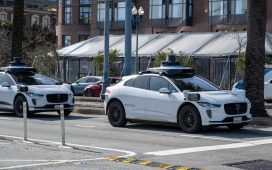The Jevons Paradox is named after 19th-century economist and logician William Stanley Jevons. In his 1865 book, “The Coal Question,” he noted that as engines improved and made coal more efficient — requiring less of the resource to produce the same amount of energy — demand for coal would actually increase, not decrease. In other words, he said, a drop in the cost of production often leads to greater production.
Televised citations (and recitations) of Jevons took off Jan. 27, as the U.S. stock market was rattled.
A Chinese artificial intelligence startup, DeepSeek, became an overnight sensation when its app shot to the top of Apple’s App Store following the release of its latest reasoning model. The Chinese company had created an AI tool with analytical capabilities rivaling those developed by Google and Microsoft’s OpenAI. And, it appeared, the company had done it at a fraction of the cost.
That sparked an “oh, expletive” panic for U.S. investors who had been shoveling trillions of dollars into the megatech firms that were building and buying advanced U.S. chips for AI.
Discover the stories of your interest

Nvidia — the center of the American AI universe and the world’s most valuable company — experienced a staggering one-day rout, losing hundreds of billions of dollars in market capitalization. But wait a second, pump the brakes, said a counter-chorus of analysts and executives, echoing Nadella. Even if DeepSeek was as cheap as its coders claimed, they said, it could actually be a pleasant surprise, boosting demand for U.S. chips and AI products in general.
Was Nadella’s invocation of the paradox self-serving thinking? Yes. But the argument also has a decent track record, beyond coal. (Even though Jevons himself failed to predict how resource substitutes, like petroleum, would complicate demand for coal.)
Computers, for example, were once the size of living rooms and far too expensive for the average person. When they shrunk in size and cost, thanks to more-efficient processing chips, personal computers became a staple in every home. Later, smartphones settled into every palm. A lot of tech companies that were big in the ’80s were trounced. But the industry blossomed.
The paradox has a darker side. Greater coal use gave us an early taste of modern comforts we now can’t imagine living without (thank you, electricity). It also contributed greatly to global warming. Smartphones have made us more connected and productive, but also hopelessly addicted to mindless scrolling (and in some ways, lonelier).
If these past Jevons paradoxes are any guide, greater AI use is sure to give us a similar mix of unforeseen marvels and miseries.









